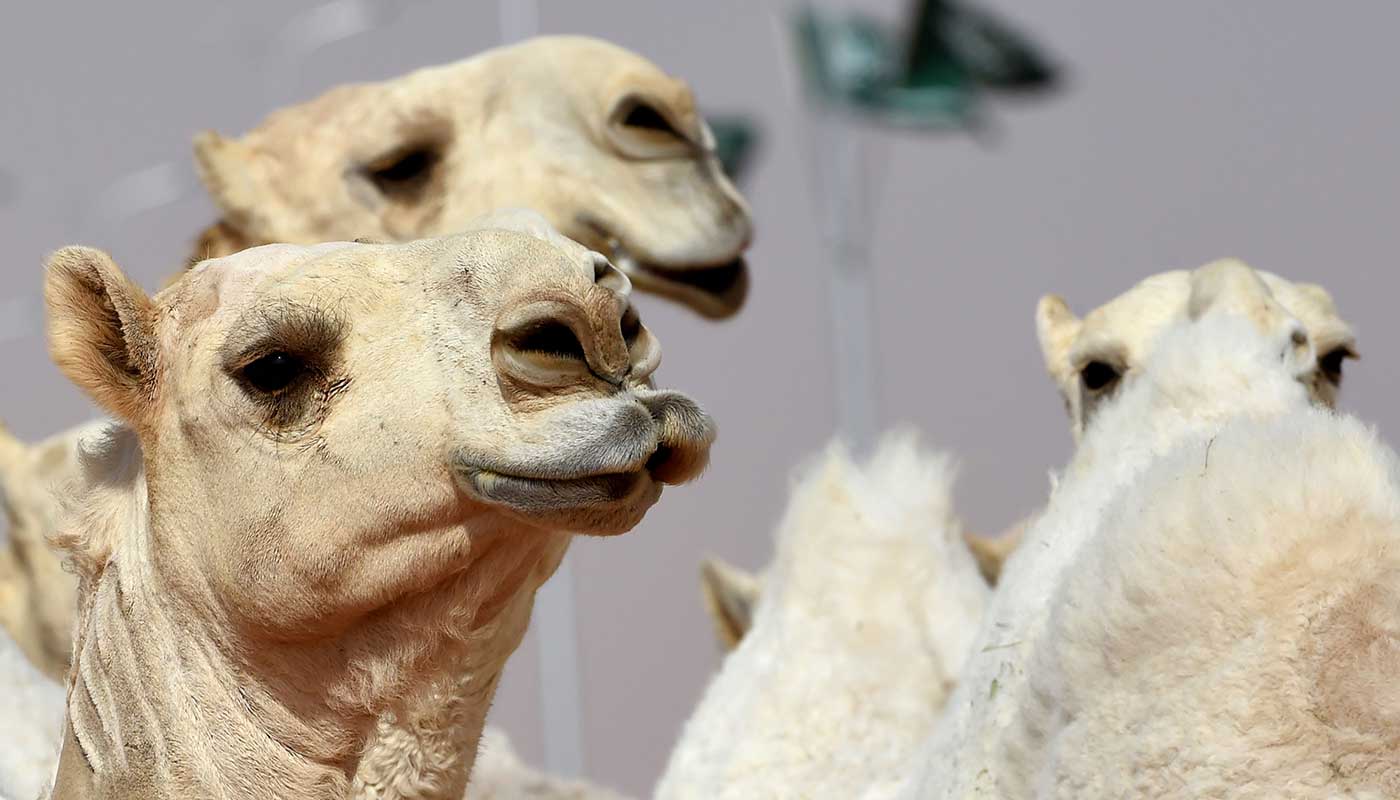Saudis ban botoxed camels from beauty contests
And other stories from the stranger side of life

A free daily email with the biggest news stories of the day – and the best features from TheWeek.com
You are now subscribed
Your newsletter sign-up was successful
Saudi Arabia has banned 40 camels from a beauty pageant after it emerged that they received botox injections and facelifts. Declaring war on cosmetically enhanced camels at the King Abdulaziz Camel Festival, Saudi authorities also ejected breeders who used muscle-boosting hormones and inflated camel body parts. The pageant’s organisers said they will “impose strict penalties on manipulators”. Camels compete each year for a $66m (£50m) prize pot and the title of Miss Camel.
Travelodge reveals strangest requests
Travelodge has revealed its strangest requests from guests this year. One guest asked where the Welsh rarebit lives and another asked a member of staff to sing in the next room to check he had a quiet room. A spokesperson said the curious requests included “arranging afternoon tea with the pandas, getting a shooting star to appear at 10pm, getting a part on Emmerdale and getting seagulls to sing instead of squawk”.
The Week
Escape your echo chamber. Get the facts behind the news, plus analysis from multiple perspectives.

Sign up for The Week's Free Newsletters
From our morning news briefing to a weekly Good News Newsletter, get the best of The Week delivered directly to your inbox.
From our morning news briefing to a weekly Good News Newsletter, get the best of The Week delivered directly to your inbox.
Female priests adopt M&S jumpers as ‘uniform’
Female priests are adopting a £20 festive M&S jumper as an unofficial uniform, according to The Telegraph. The black jumper, emblazoned with the word “believe” in bold colours, has been bought by several female priests, who use the hashtag “TeamBelieve” on social media when sharing photographs of them wearing it. Reverend Claire Jones, a curate in Bodmin, Cornwall, is collating a photo montage of more than 200 clergy wearing the high-street jumpers.
A free daily email with the biggest news stories of the day – and the best features from TheWeek.com
Chas Newkey-Burden has been part of The Week Digital team for more than a decade and a journalist for 25 years, starting out on the irreverent football weekly 90 Minutes, before moving to lifestyle magazines Loaded and Attitude. He was a columnist for The Big Issue and landed a world exclusive with David Beckham that became the weekly magazine’s bestselling issue. He now writes regularly for The Guardian, The Telegraph, The Independent, Metro, FourFourTwo and the i new site. He is also the author of a number of non-fiction books.
-
 The environmental cost of GLP-1s
The environmental cost of GLP-1sThe explainer Producing the drugs is a dirty process
-
 Greenland’s capital becomes ground zero for the country’s diplomatic straits
Greenland’s capital becomes ground zero for the country’s diplomatic straitsIN THE SPOTLIGHT A flurry of new consular activity in Nuuk shows how important Greenland has become to Europeans’ anxiety about American imperialism
-
 ‘This is something that happens all too often’
‘This is something that happens all too often’Instant Opinion Opinion, comment and editorials of the day
-
 Epstein files topple law CEO, roil UK government
Epstein files topple law CEO, roil UK governmentSpeed Read Peter Mandelson, Britain’s former ambassador to the US, is caught up in the scandal
-
 Iran and US prepare to meet after skirmishes
Iran and US prepare to meet after skirmishesSpeed Read The incident comes amid heightened tensions in the Middle East
-
 Israel retrieves final hostage’s body from Gaza
Israel retrieves final hostage’s body from GazaSpeed Read The 24-year-old police officer was killed during the initial Hamas attack
-
 China’s Xi targets top general in growing purge
China’s Xi targets top general in growing purgeSpeed Read Zhang Youxia is being investigated over ‘grave violations’ of the law
-
 Panama and Canada are negotiating over a crucial copper mine
Panama and Canada are negotiating over a crucial copper mineIn the Spotlight Panama is set to make a final decision on the mine this summer
-
 Why Greenland’s natural resources are nearly impossible to mine
Why Greenland’s natural resources are nearly impossible to mineThe Explainer The country’s natural landscape makes the task extremely difficult
-
 Iran cuts internet as protests escalate
Iran cuts internet as protests escalateSpeed Reada Government buildings across the country have been set on fire
-
 US nabs ‘shadow’ tanker claimed by Russia
US nabs ‘shadow’ tanker claimed by RussiaSpeed Read The ship was one of two vessels seized by the US military